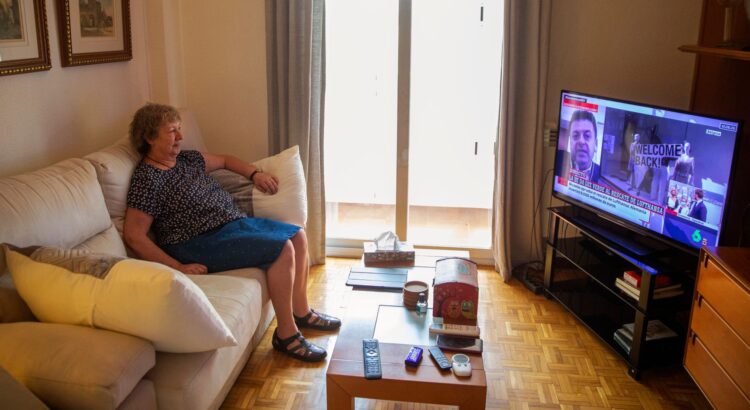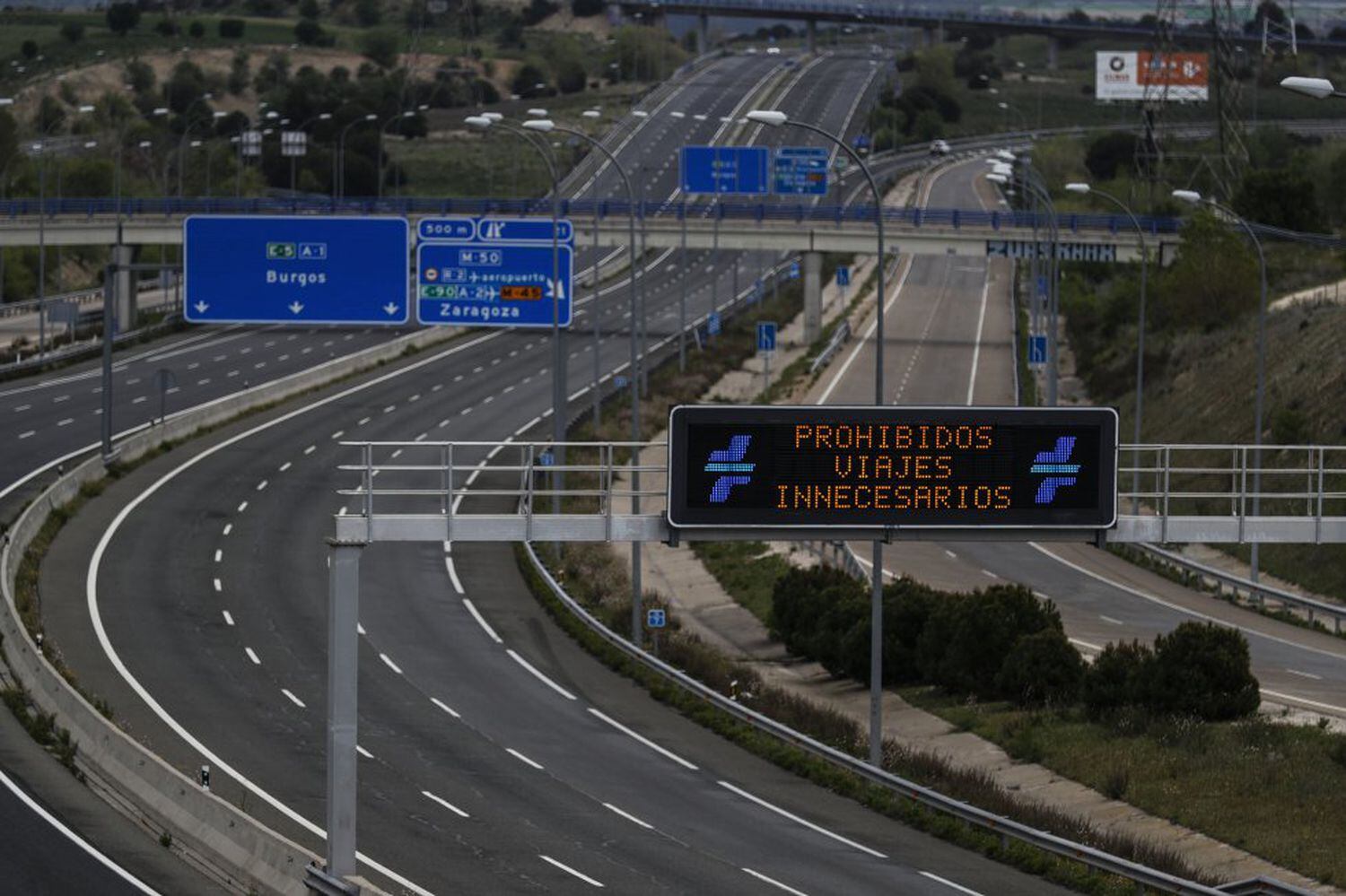Europe / Spain / 08/07/2020 / Authors: Noor mahtani and Miguel Ángel medina / Source: english.elpais.com
Although the confinement measures have ended, many people still feel anxious about leaving their homes and are worried about the risk of contagion.
“I have traveled around Africa, I have seen people die in the street, I have been in Colombia with the Zika [virus] and in Congo with Ebola, but I have never felt panic going outside like I do now,” says David Martín, a 48-year-old researcher. Martín, who is from Granada but lives in Madrid, has still not stepped outside even though Spain lifted the state of alarm on June 21. “I have recurring nightmares about diseases. I don’t go outside unless I am taking out the trash,” he adds. Psychologists refer to this as the fear of leaving a place after a long period of reclusion, and it can affect women and men of all ages.
“It is not a pathology or a disease but it could lead to one,” says psychologist Laura Croas, who is an expert in emotional engineering. “It is the consequence of an exceptional situation which in this case has been confinement,” she continues. For people who found a place of comfort and safety in their homes during the coronavirus lockdown, going outside and doing everyday activities like visiting friends, taking public transport or walking in busy places can be mission impossible. “It generates fear in those who are doing something for the first time,” Croas explains. To alleviate the feeling of being overwhelmed, she recommends taking small steps: going for a walk around the block, avoiding peak hours when there are more people on the street and meeting up with small groups.
Sometimes this fear can go further. According to a recent study by the Spanish medical insurance company Sanitas, 8% of Spaniards believe they will need psychological help to recover from the scars caused by the coronavirus lockdown, which was introduced in mid-March. The study, which interviewed a thousand people, showed that the state of alarm took a larger emotional toll on women, people under the age of 35, and those who have needed psychological help in the past.
Sweaty hands, anxiety and dizziness. This is what Cristina feels every time she has tried to go outside. She has still not managed it. “Confinement changed me. Just thinking about stepping out onto the street scares me,” she explains. According to Cristina, who preferred not to give her surname, the feelings of panic have even led to nightmares, and the 40-year-old has been seeing a psychologist remotely for three weeks to try to find a solution. “Now, with meditation and breathing exercises, I am getting better, but I think I will be confined for more time.”
Victoria Cadarso, an expert psychologist in trauma, says that in cases such as Cristina’s, it’s important to seek help. “It is the same with any other traumatic experience. Once the source is understood, it can be managed.” Last Wednesday, Cadarso gave a workshop on fear management to more than 2,300 people across the world. “It’s common behavior. There is not a clear profile of the people it affects, it depends on each person’s experience and level of resilience.”
“Until there’s a vaccine, I’m not going out”
Croas warns that young people and adolescents have replaced face-to-face social gatherings with video games and video calls as a result of this fear. Ángeles (fictitious name) has still not seen her friends or his family. “Until there’s a vaccine, I don’t think I’m going to go out. Perhaps later on I will start going out in open spaces, but I don’t see myself having dinner at a restaurant or going into a shop,” she says. The 27-year-old has not sought psychological help, but she is considering it. “I have had to go out three times to go to the doctor and all three times I got very nervous. I was very keen to get back home,” she explains. “When we were given permission to go out for walks, I tried to leave, but seeing so many people I felt overwhelmed. It was also very hard for me to breathe with the face mask on, so I decided I couldn’t go out again,” she adds.
The fear affects people of all ages. Pilar Orgaz, a 67-year-old retiree, does not want to leave her apartment in Villaverde. In three months, she has only left once to go to the hairdresser. But she believes it’s because she hasn’t wanted to. “I miss going out and seeing my friends, but I have more worries than a desire to go outside,” she says. Orgaz doesn’t even go out to go for a walk, instead using a treadmill at home. Her husband has tried to convince her to spend some days in their apartment by the beach, but she has refused. “What happens if they shut down the country again? Too many people get together too much, they’re not being careful anymore. There are definitely going to be outbreaks [of the coronavirus],” she says.
There are other people, like Daniel Vega, who have reconnected with their homes. The 36-year-old freelancer, who works in the audiovisual sector, has not left his Madrid apartment once since March 11, three days before the Spanish government declared a state of alarm in a bid to control the spread of the coronavirus. “I have rediscovered my home. Before I had two jobs and I didn’t enjoy it. I didn’t have time to stop and read a book or play a video game. I have also discovered the joy of cooking and eating with calm,” he says. His partner walks their dog and they buy their groceries online. “I have made the decision not to leave out of respect for my friends who are health workers. I am not afraid, but rather responsible. Many people are irresponsible and there will be [coronavirus] outbreaks. I will not have a problem going out when things begin to calm down,” he adds.
According to one survey, 8% of Spaniards believe they will need psychological help to recover from the scars caused by the coronavirus lockdown
María Zaragoza, a writer, says she has always liked to stay at home so the lockdown was not difficult for her. “I used to travel a lot and I always missed home. The shutdown due to the confinement measures has helped me a lot to work on a novel. I think people who like being at home have had an easier time. I have only gone out to take out the trash and go to the supermarket,” says the 37-year-old from Castilla-La Mancha. For now, she has decided to remain in her home in Castilleja de Guzmán in Seville and not to see friends or revive her social life. “I miss seeing my family. Before I traveled once a month to Campo de Criptana [in Ciudad Real] to see them. But I don’t feel like getting on a train with a face mask and without there being distance with other passengers,” she says.
David Martín has had the same problem. “I bought two tickets to visit my parents in Granada but in the end I had to cancel them because I didn’t think I was capable of going. I was scared of infecting them,” he explains. “I stopped watching the news to see if my mindset changed, but to no effect. The other day I saw that there were another 200 cases and that made me feel worse again.” Martín is waiting for something he can’t define to happen before he can return to his normal life. “I hope that then I can go out without any problem.”
English version by Melissa Kitson.
Source and image: https://english.elpais.com/society/2020-07-02/the-trauma-left-by-spains-coronavirus-lockdown-i-have-never-felt-panic-going-outside-until-now.html









 Users Today : 36
Users Today : 36 Total Users : 35460577
Total Users : 35460577 Views Today : 52
Views Today : 52 Total views : 3419534
Total views : 3419534